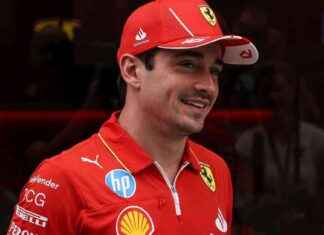French President Emmanuel Macron is participating Thursday, March 2 in Libreville with several Central African heads of state in a summit devoted to the protection of tropical forests, at the start of a four-day tour of the region.
Mr. Macron arrived in the capital of Gabon on Wednesday evening and was received at the presidential palace by his counterpart Ali Bongo Ondimba.
This summit, called One Forest Summit, and co-organized by the two countries, is intended to find “concrete solutions” for the conservation of forests, the protection of the climate and species in a context of climate change, but “does not will not aim to push through new political declarations,” the organizers stressed in advance. They specify that it will mainly aim to implement the objectives set by the Paris climate agreement (2015) and the Montreal COP15 on biodiversity (2022).
The French head of state must go in the morning to the park of the Arboretum Raponda Walker, one of the protected areas of the Gabonese coast north of Libreville, before joining the presidential palace for meetings with scientists, NGOs and private sector actors in the afternoon.
Other Heads of State including Denis Sassou-Nguesso (Congo-Brazzaville), Faustin-Archange Touadéra (Central African Republic), Mahamat Idriss Déby Itno (Chad) or Teodoro Obiang Nguema Mbasogo (Equatorial Guinea) will also make the trip. The French and Gabonese presidents will conclude the summit with two speeches at the end of the day.
The One Forest Summit began on Wednesday with discussions between ministers, civil society and experts on several topics (sustainable forest management, biodiversity, financing).
Diminishing influence
However, the arrival of Emmanuel Macron has been decried by part of the Gabonese political opposition and civil society, accusing him of coming to “doubt” Ali Bongo, elected under controversial conditions in 2016 and likely candidate for re-election. This year.
This is Emmanuel Macron’s eighteenth trip to Africa, since the start of his first five-year term in 2017, where French influence and presence are increasingly questioned.
Since 2022, the French army has been pushed out of Mali and Burkina Faso by the ruling juntas in these two countries. Burkina has just denounced a “military assistance agreement” signed in 1961 with France, the day after the country’s independence.
Armed with Wagner Group mercenaries and disinformation campaigns that fuel anti-French sentiment, Russia is increasingly outweighing Paris in this historic French sphere of influence.
Emmanuel Macron presented Monday, from Paris, his African strategy for the next four years. He advocated “humility” and encouraged a new “balanced” and “responsible” partnership with African countries. He also announced a reduction in the French military presence, which has been concentrated for ten years on the fight against jihadism in the Sahel.
Election year
After Gabon, the French president will visit Angola, Congo and the Democratic Republic of Congo. In Angola, the Head of State will sign an agreement aimed at developing the agricultural sector there.
He will then make a brief stopover in Brazzaville, where Denis Sassou Nguesso has ruled the Congo with an iron fist for nearly forty years. A meeting which risks, again, appearing against the grain of his speech on Monday.
He will conclude his tour in the Democratic Republic of Congo (DRC), a former Belgian colony but also the largest French-speaking country in the world, where President Félix Tshisekedi, in power since January 2019, is preparing for an election this year.
This step can also prove delicate when France is accused in the DRC of supporting Rwanda rather than Kinshasa, which is facing a rebellion in the east of the country.







